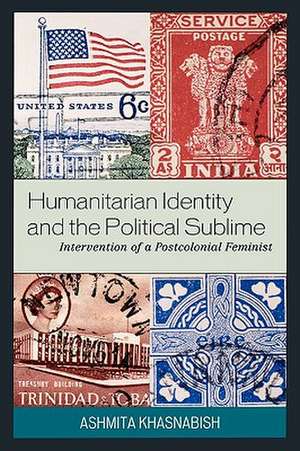Humanitarian Identity and the Political Sublime
Autor Ashmita Khasnabishen Limba Engleză Hardback – 16 mar 2009
Preț: 700.51 lei
Preț vechi: 909.75 lei
-23% Nou
Puncte Express: 1051
Preț estimativ în valută:
134.11€ • 139.93$ • 112.42£
134.11€ • 139.93$ • 112.42£
Carte tipărită la comandă
Livrare economică 12-26 martie
Preluare comenzi: 021 569.72.76
Specificații
ISBN-13: 9780739122921
ISBN-10: 0739122924
Pagini: 190
Dimensiuni: 152 x 229 x 14 mm
Greutate: 0.45 kg
Ediția:New.
Editura: Rowman & Littlefield
ISBN-10: 0739122924
Pagini: 190
Dimensiuni: 152 x 229 x 14 mm
Greutate: 0.45 kg
Ediția:New.
Editura: Rowman & Littlefield
Notă biografică
Paget Henry is Professor of Africana Studies and Sociology at Brown University. His books include Caliban's Reason (2000).
Descriere
In Humanitarian Identity and the Political Sublime, Ashmita Khasnabish unites Amartya Sen's concept of pluralistic identity with Sri Aurobindo's philosophy of the "religion of human unity," where the European and Western philosophy of Enlightenment meets the East/India/Bengali intellectual and spiritual thought. The resulting neo-Enlightenment phil
